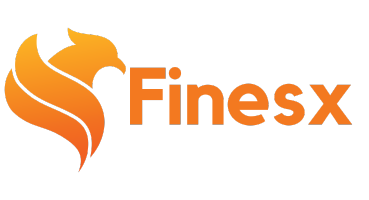“The Unseen Web: Navigating the Depths of the Dark Web”
The term “dark deep” does not have a specific or widely recognized meaning in the context of the internet or technology. It may be a misunderstanding or a combination of terms like “dark web” and “deep web,” .
The internet is a vast and interconnected web of information, but not all of it is accessible through a simple Google search. Beneath the surface lies a mysterious and often misunderstood realm known as the “dark web.”
The “dark web” refers to a part of the internet that is intentionally hidden and inaccessible through standard web browsers and search engines. It is a subset of the deep web, which includes all web pages not indexed by search engines. The dark web is often associated with illegal activities due to its anonymity and privacy features, but it’s important to note that not everything on the dark web is illegal. In this blog post, we’ll delve into the dark web, exploring what it is, what you might find there, and the risks associated with it.
Unveiling the Dark Web

The term “dark web” refers to a part of the internet that is intentionally hidden and inaccessible through conventional web browsers and search engines. To access it, users typically rely on specialized software like Tor (The Onion Router), which anonymizes internet traffic by routing it through a network of volunteer-operated servers. This provides a higher level of privacy and makes it challenging to trace users’ online activities.
What’s on the Dark Web?

Online Marketplaces: The dark web has gained notoriety for its underground marketplaces where users can buy and sell a range of illegal goods and services, including drugs, weapons, stolen data, and hacking tools.
Privacy and Anonymity Tools: Ironically, the dark web is also home to privacy enthusiasts, activists, and whistleblowers who use it to communicate securely and anonymously. You can find tools for secure messaging, encrypted email services, and privacy-focused search engines.
Forums and Communities: Various online communities exist on the dark web, discussing topics ranging from hacking techniques to political activism. Some are engaged in lawful and legitimate activities.
Illegal Activities: The anonymity it offers can attract cybercriminals, leading to illegal activities like the sale of drugs, weapons, and stolen data.
- Scams and Frauds: Scammers and fraudsters abound on the dark web, making it a risky place for unsuspecting users.
- Malware and Cyberattacks: Some parts of the dark web are riddled with malicious software and cyber threats.
Staying Safe Online
Legal and Ethical Use: Ensure that your reasons for accessing the dark web are legal and ethical. Engaging in illegal activities on the dark web can lead to severe legal consequences.
Use Secure Software: Use the Tor browser for accessing the dark web. It is designed to provide anonymity and privacy. Download it only from the official website (finesx.com) to avoid downloading a compromised version.
Use a VPN (Optional): While Tor offers anonymity, combining it with a reputable virtual private network (VPN) can add an extra layer of security. However, choose a trustworthy VPN service that does not log your activity.
Verify URLs: Be cautious when clicking on links. Verify the legitimacy of websites or marketplaces by checking user reviews and forums. Some dark web websites are scams.
Secure Your Device: Ensure that your computer or device is secure by using strong, unique passwords, and enabling full-disk encryption. Keep your operating system and security software up to date.
Leave No Trace: When you’re done, close the Tor browser, clear your browsing history, and ensure that there’s no residual data left on your device.
Seek Legal Advice: If you have concerns about the legality of your actions on the dark web or if you come across illegal content, seek legal advice from a professional.
Practice Good OpSec (Operational Security):
- Never use your real name or personal information.
- Disable JavaScript in your Tor browser for added privacy, but be aware that it may limit your access to some websites.
- Disable or restrict browser plugins that can leak your real IP address.
